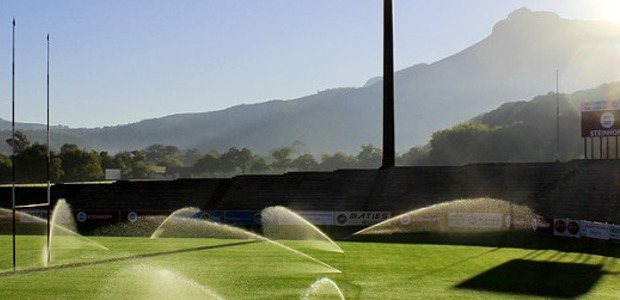France’s quarter-final victory gives clues to managing talent under pressure
Organisational culture and leadership performance influenced the France vs. England Rugby World Cup quarter-final, according to analysis from Towers Watson.
LONDON, PARIS – Thursday 13 October, 2011 – For England fans the Rugby World Cup is over, while a revived French team outperformed their arch rivals against the odds and are now on course for their third consecutive semi-final. The question of the day is how did France manage to transform themselves overnight to knock England out of the World Cup. Towers Watson suggests that the answer lies somewhere in the parallels between the typical management style and company culture in each country and the performance of their teams.
The Towers Watson Rugby World Cup Analysis uses a compilation of the firm’s recent client employee opinion survey data that measures key talent management issues for defined groups. French and English benchmark data, representing the views of over 265,000 employees at 140 companies, was used to identify the relative strengths in each culture as defined by the Towers Watson manager effectiveness performance model See notes to editors . The performance model depicts how managers contribute directly and significantly to sustainable competitive advantage .
Angela Paul, Head of Research for Europe, Organisational Surveys and Insights (OSI), Towers Watson said: “While we usually use our research and expertise to assess organisations, we thought it would be interesting to apply it to linking the performance of teams in the Rugby World Cup to key differentiators of the management styles of their countries. We found the relative strengths in the French culture and management style could be presented as a possible explanations for their match success.”
According to Towers Watson, the track records of the two teams suggested it was England’s game to lose, however it points to some features Percentages are typically associated with levels of agreement, known as favourable scores. For illustration, a 50% favourable response suggests that half of the people surveyed agreed to the statement posed. Benchmark data is derived from client studies conducted by Towers Watson and updated annually. Data is weighted by size so that no single organisation dominates a benchmark.
within French culture and management style that may have helped them win against expectations, notably:
* Executing Tasks – France 49% vs. England 39%. French companies are typically recognised as having a greater capacity to plan for the future than their English counterparts and, in spite of the leadership of the French manager Marc Lièvremont coming under question in the build up to the match, the French team timed their transformation perfectly.
* Energising Change – France 50% vs. England 40%. French organisational and cultural trends were reflected by the ability of the French players off the field to recognise, explain and adapt to change and subsequently on the field to share information across positions, which enabled a more dynamic, and composed performance when it mattered most.
* Acting with Authenticity and Building Trust – France 52% vs. England 44%. The squad are more likely to have benefited from strategic input, before team changes were made, resulting in their enhanced engagement – a trait reflected prominently in French company culture. This contrasts with the adoption by England of a more conservative and controlling style of management.
* Delivering the Deal – England 53% vs. France 31%. In contrast, English organisational culture puts more emphasis on providing recognition and reward, other than money, to encourage good and more sustainable performances. This poses the question whether the commitment demonstrated by the French team will be a one-off performance.
Yves Duhaldeborde, OSI Director for EMEA at Towers Watson, said: “The capacity for France to reinvent itself against expectations is a pillar of rugby folklore and proved to be a critical driver in motivating the squad to perform under pressure. In an age of networks, knowledge and self-motivated professionals working in teams, administering resources isn’t enough. Top performers are most engaged when they can embrace and be guided by an organisation’s, or in this instance a team’s, vision, value and strategy. As demonstrated by the inspirational and shared leadership shown by key French players on the field, the management of talent today is different from the centralised, hoarded leadership of the past.
“Companies are under increasing pressure to redesign the role of the manager within their organisation, to redefine what managers must do and how they must do it, and to better harness their potential power to enhance and sustain employee engagement, morale and productivity.”
This study is part of broader analysis, currently being undertaken by Towers Watson, in an attempt to predict the eventual winner of the competition.
2 Percentages are typically associated with levels of agreement, known as favourable scores. For illustration, a 50% favourable response suggests that half of the people surveyed agreed to the statement posed. Benchmark data is derived from client studies conducted by Towers Watson and updated annually. Data is weighted by size so that no single organisation dominates a benchmark.

About Towers Watson’s Manager Effectiveness Performance Model
The Towers Watson Performance Model comprises four pillars describing the activity of effective line supervisors. Executing tasks; Energising Change; Developing People & Delivering the Deal; and Acting with Authenticity & Trust. The model was statistically validated using employee opinion data from the firm’s Global Workforce Study 2010, an online survey of roughly 22,000 full-time employees in mid-size to large organisations across 28 markets. It is applied in Towers Watson’s employee surveys and consulting practice to measure and facilitate the effectiveness of line supervisors. In addition, the model is featured in a book called The Manager Redefined, where it demonstrates how managers can contribute to sustainable competitive advantage. The book was authored by Tom Davenport and Stephen Harding and was published by the Jossey-Bass division of Wiley in October 2010.
About Towers Watson
Towers Watson (NYSE, NASDAQ: TW) is a leading global professional services company that helps organisations improve performance through effective people, risk and financial management. The company offers solutions in the areas of employee benefits, talent management, rewards, and risk and capital management. Towers Watson has 14,000 associates around the world and is located on the web at www.towerswatson.com







